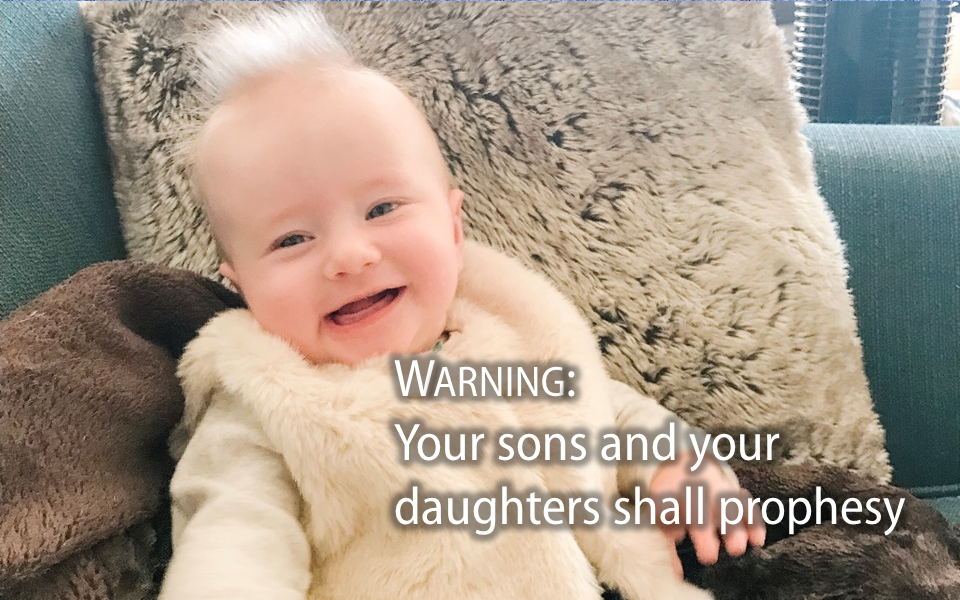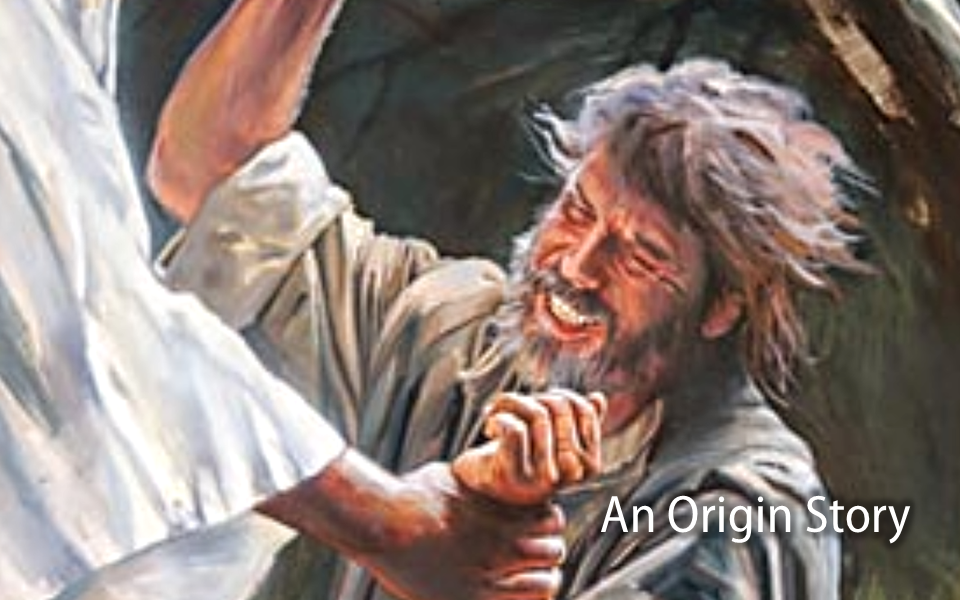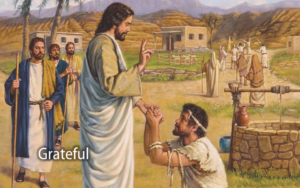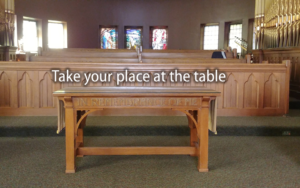Hespeler, 3 November, 2019 © Scott McAndless
Isaiah 1:10-18, Psalm 32, 2 Thessalonians 1:1-4, 11,12, Luke 19:1-10
The PR people came in with their graphs and charts and PowerPoints and laid out the situation for him.
“Mr Zacchaeus,” they said, “you definitely have an image problem but we think we can help you. You are, without a doubt, the richest man in the city of Jericho so you ought to be the most popular. But there’s a bit of a problem. We thought at first that it might be because people are jealous that you have done so well, but we don’t think that’s it. Nor is it because you are too short. I know you don’t like being short of stature, but actually most people seem to think you’re a little bit cuddly and cute.
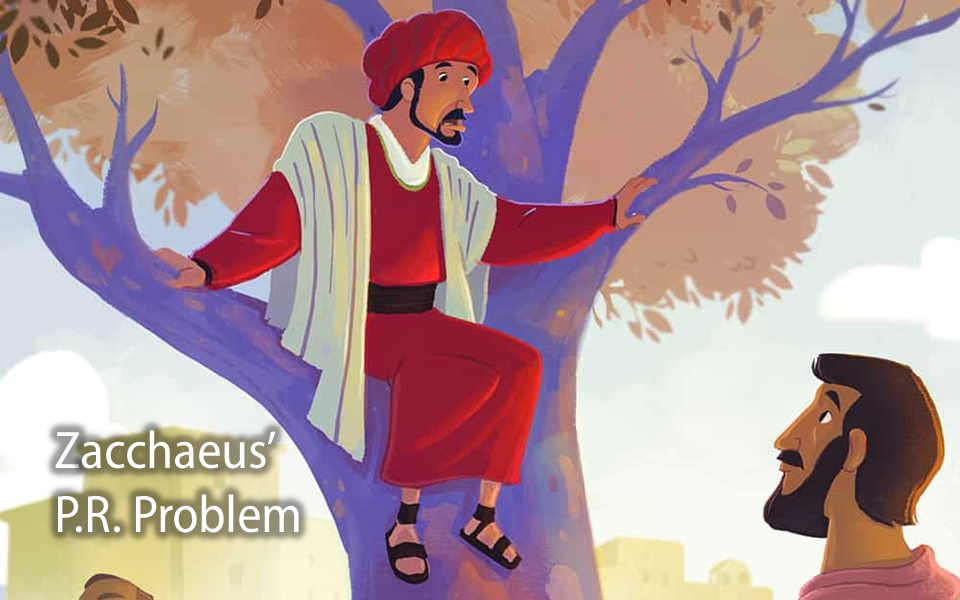
No, it seems, the problem is how you managed to amass your enormous wealth. It seems that the people aren’t as foolish as we all assumed. They know that, when you bought the contract to collect taxes here in Jericho, the Romans let you keep whatever extra money in taxes you were able to get out of the people. They understand that, if you’ve gotten rich, it’s because you have been cheating and squeezing people for everything that they are worth. Strangely, people seem to resent that in a tax collector. So, they just don’t like you.
“But don’t worry, we’ve got a plan to rehabilitate your image in the city. We think that if you can show yourself to be a really religious person, you know, somebody who celebrates all the festivals, the new moons and Sabbaths, who commissions sacrifices at the temple and participates in holy processions, it’s going to make a big difference. People love things like that, they eat it up. You do a little bit of that stuff in the city, lots of public praying and lavish donations to the temple, and people will start to think that you must really be a good person.
“And, by the way, don’t worry, you can still keep ripping people off all you want. That’s the beauty of it. If you show yourself to be all pious and religious like that, they’ll just assume that you really must be a good person despite the terrible things you do. If you project the right image, you can get away with anything.”
That is what the PR people said to Zacchaeus, or at least it’s what they would have said if the profession existed back in the first century because that was how it was done. In many ways, it is how it still works. Everybody understood that open and outward religious displays were the best way to win over all of the people who thought you were a terrible person because they thought that all of that religious stuff was pleasing to God. There are still a lot of people who think that way today. It’s one good reason, for example, why it’s very hard to get anywhere as a politician these days if you do not profess to belong to some religion or at least have some religious leaders backing you.
I’m sure that Zacchaeus listened to that kind of advice and maybe even tried to follow it. That’s exactly what people in his position always did. And maybe, at least in some outward form, it actually worked. He probably did get some powerful people to applaud his outwardly religious displays. Project the right image and people will respond. But I suspect that, at some level, Zacchaeus knew that it was all just a show. He might be fooling some of the people, but he was not fooling himself and there was no way he was fooling God.
And so, when he heard of a new teacher and wonderworker passing through town, a Galilean from up north, he paid attention. Everyone was saying that this man was different, he saw you for who you really were and didn’t really care about image and all the other things that everyone else seemed so obsessed with. Zacchaeus figured that this man would be able to see through all of that religious stuff he had learned to hide behind. What’s more, everyone said that this Jesus was completely authentic. He didn’t hide behind anything. So, Zacchaeus became obsessed. He had to know who this Jesus was. He felt certain that if only he could discover that, he would finally know who he himself truly was.
That is, by the way, something very odd about the way that the story of Zacchaeus is told in the Gospel of Luke. When Zacchaeus goes out to try to see Jesus, we’re told that he has a very particular goal in mind and it is not what you might expect. Normally, if I were to go out to see some minor celebrity who was passing through Hespeler, I might say that I was going to see what he was doing here or what she might say or do and I might even say that I was going to see what all the fuss was about and why everyone else was going. Those are all good reasons why Zacchaeus might have gone out to see Jesus, but that is not why we’re told he went. He went – and this is what it literally says in the original Greek text – he went to see “who is Jesus.” In other words, he was not drawn by the man’s words or actions or his fame so much as he was drawn simply by his identity.
And I think there is an important message in that all by itself. The story of Zacchaeus is the story of transformation – real transformation. It is the story about how a rich man decided to change the very basis of his life and to stop living by exploiting others – especially the poorest of the poor in his community. That is the kind of transformation we all need to learn about and understand because, I’ll tell you, there is a tremendous need for all kinds of individuals in our modern world to make exactly that kind of transformation. Relentless exploitation lies at the heart of so many of the problems that plague our modern world including poverty, the opioid crisis, the environment and climate change. The more people make that kind of transformation, honestly, the more hope I see for the world.
And it is Zacchaeus’ encounter with the authenticity of Jesus, Luke seems to be telling us, that lies at the heart of his transformation which maybe explains why we don’t see more of that kind of transformation in the modern world. We live, after all, in a world where everything is more about image than it is about who somebody really is.
Take a look, for example, at the recent federal election in Canada. I have not found very many people who saw that campaign as particularly inspiring. This was not, as far as I can see, because Canadian politicians are not, many of them at least, very fine and excellent people who, in some cases at least, have good policies. It is because the campaign was not fought in such terms – it was fought in terms of image. It was all about candidates trying to put forward the best constructed image that they could and everyone else trying to destroy that image. In Zacchaeus’ world (and in the world of our Old Testament reading from the Book of Isaiah) that kind of image was usually constructed through various forms of religious observance. Today the experts have come up with much more elaborate forms of image construction, but the problem, at its heart, is still the same. It’s still all about the image you project. I think that people are getting tired of that kind of thing and are craving for something much more authentic.
So, I find it very significant that Zacchaeus’ craving for authenticity in Jesus is the first step of his transformation. Is a reminder to me that, if the church today wants to play a part in the transformation of people in ways that will bring renewal to this world, we’re not going to do that by presenting a flashy image or an entertaining presentation. We are going to do that by being authentic, by not being afraid to be who we truly are and who God made us.
So, Jesus’ authenticity is the first step in Zacchaeus’ transformation. The second step comes in the moment when Jesus first spies Zacchaeus as he looks down from his sycamore tree. “Zacchaeus,” Jesus says, “hurry and come down; for I must stay at your house today.” That is the last thing, indeed the only reported thing, that Jesus says to Zacchaeus before he decides to totally change everything in his life. Why is it so transformative?
I realize, of course, that what Jesus says might sound a little bit rude to us. In our culture it is considered a bit presumptuous to just inform somebody that you’re staying at their house. But in ancient Palestinian culture, inviting yourself to dinner was actually a very common way of honouring people and treating them as important. What Jesus is doing, by saying this, is letting Zacchaeus know that he is seen and known for who he is and that Jesus can see past all of the terrible things that he has done to people.
This is the flip side of the authenticity that Jesus presented and that first attracted Zacchaeus’ attention. Because Jesus is not concerned about presenting a correct and acceptable image to the world, because he has found the freedom to just be who he is, he can just blast past the images that everyone else gets hung up over. He can see that, whatever else he is, that Zacchaeus too is a son of Abraham. Jesus sees him with the eyes of grace.
At the end of the story, Jesus proclaims that salvation has occurred, that it has entered into the household of Zacchaeus. It should be noted that the salvation he speaks of is specifically for that household. There are still many others who suffer and are in need of salvation because, whatever Zacchaeus himself does, the unjust tax system that is rife with abuse and exploitation will still continue to suck the people dry. But Zacchaeus is set free from the hold that it had over him. And he is set free from continually trying to pretend to be somebody he’s not, putting on some image that never quite works in order to seek the approval of the people around him. It doesn’t change everything for everyone, but it is the beginning of the kind of change that truly can remake this world.
As I have already noted, we do live in a world today where relentless image making seems to be the only thing that matters. Those who present the best public image, be they politicians, business people or influencers are perceived to be the winners. And I feel that the church often feels the pressure to play that image game. We are made to feel as if we’ve got to present a slick, polished product in order to be what the world calls “successful.” And there is no question that there are some churches out there that are able to accomplish some amazing things by projecting that kind of image, though there have sadly been some cases of late where such churches have been exposed, underneath that slick image, to be something quite different and that has certainly damaged the cause of Christ.
But I don’t really want to spend my time criticizing churches that put all that energy into image building. Let them enjoy the success that the world gives them. I just want to ask the question whether that is the kind of success that we should be pursuing.
What if the true goal of the church is the transformation of people like Zacchaeus? What if it is to encourage those people to rip away the image that they’ve so carefully constructed to present to the world and allow God to bring the change that is necessary into their lives? Is that not what success in the kingdom of God really amounts to? If that is what we are called to do, I don’t think it matters how slick of an image the church presents to the world, that’s not what is going to get us there. But when we all learn to drop the pretenses, to let go of that image work that we cling to to make ourselves seem acceptable and decide to just be who God created us to be and to see people as God sees them, then, maybe, true transformation that matters can begin.
